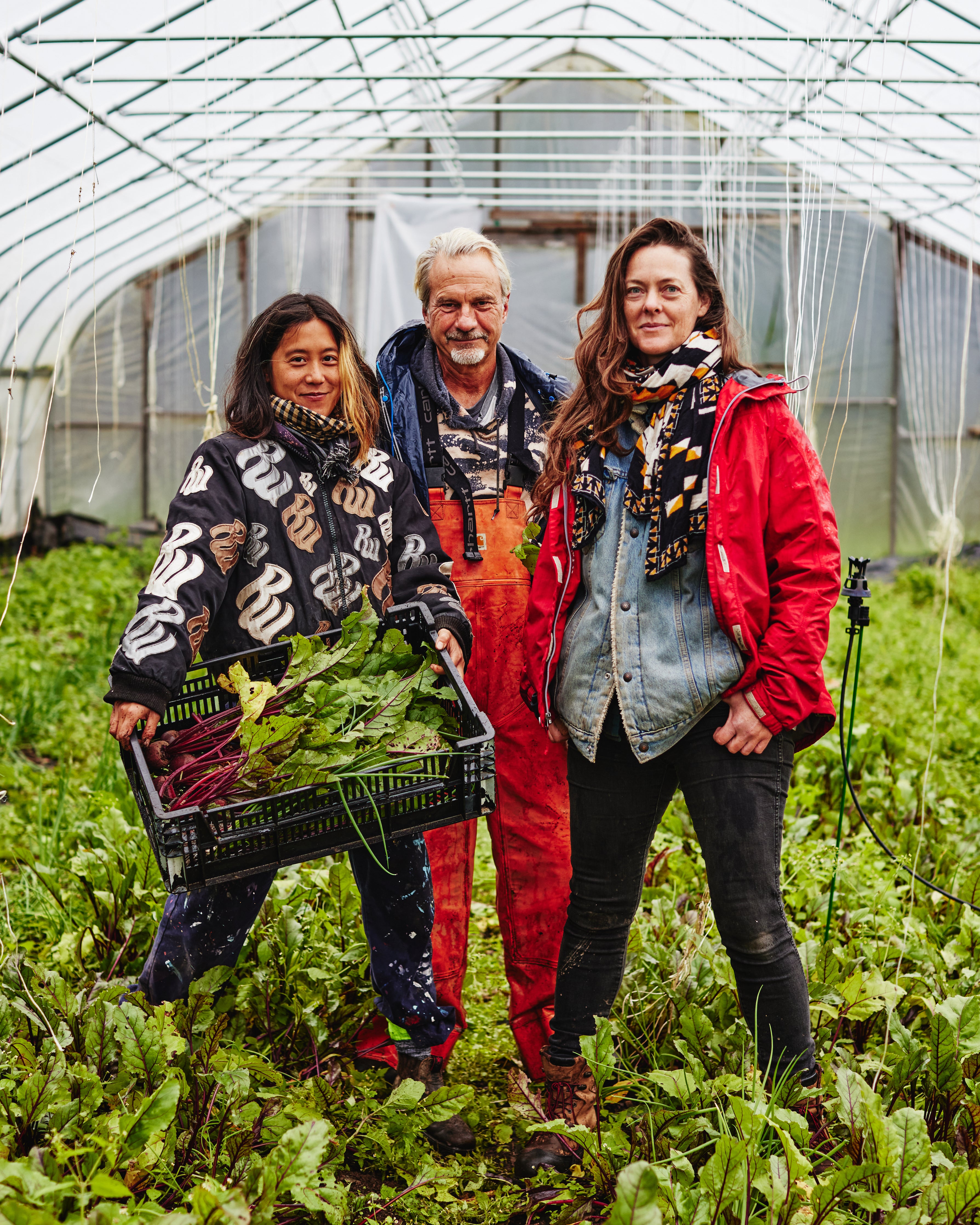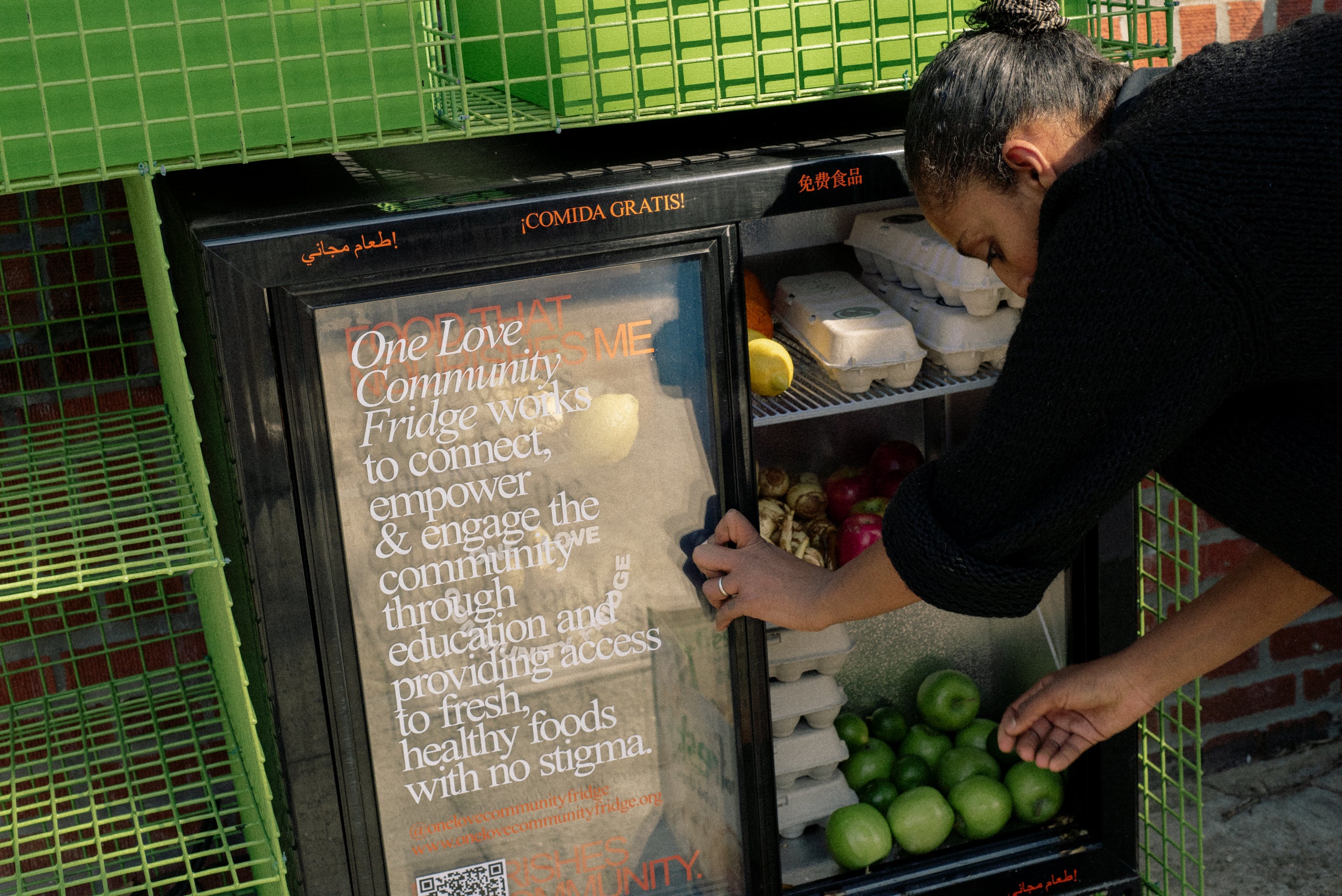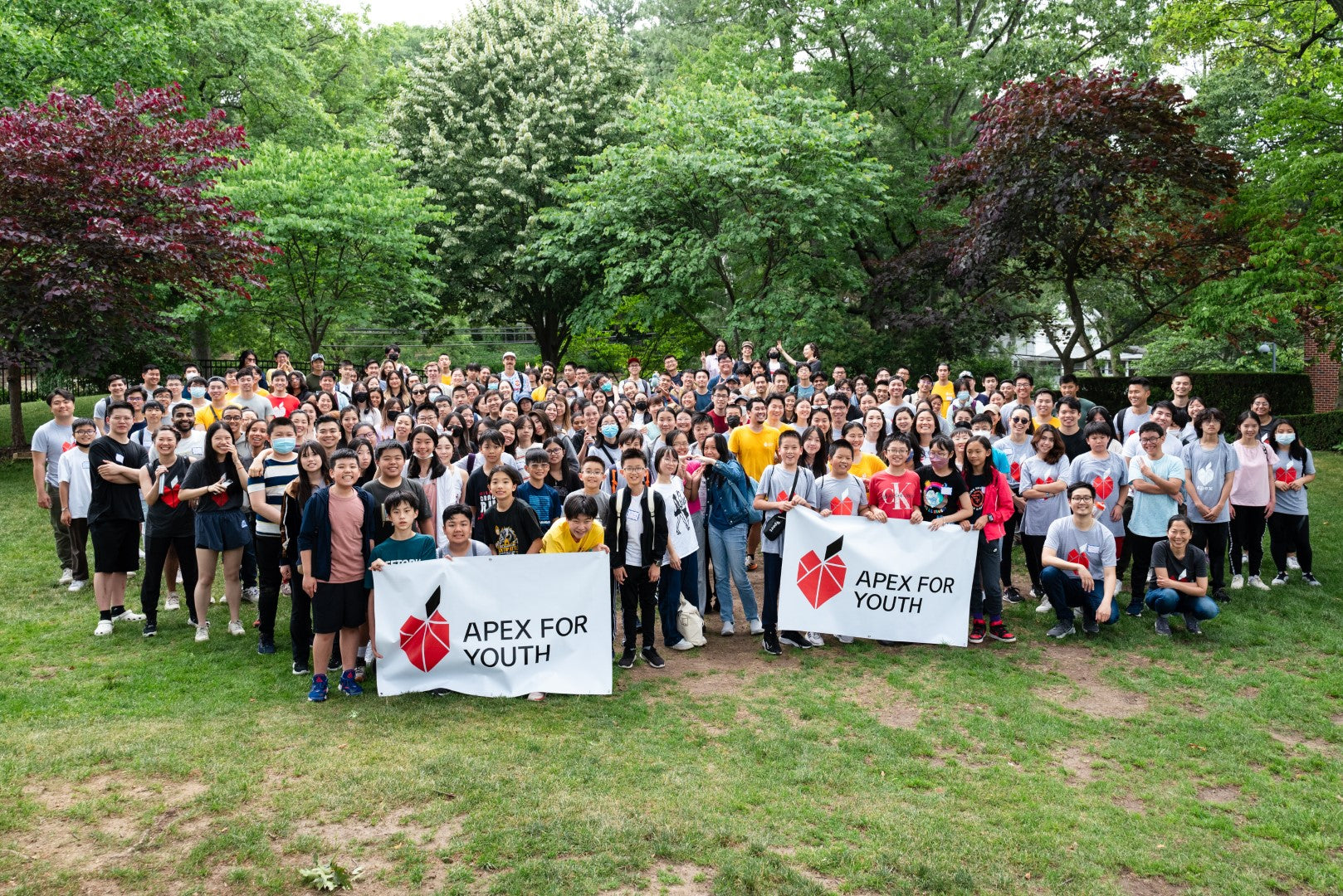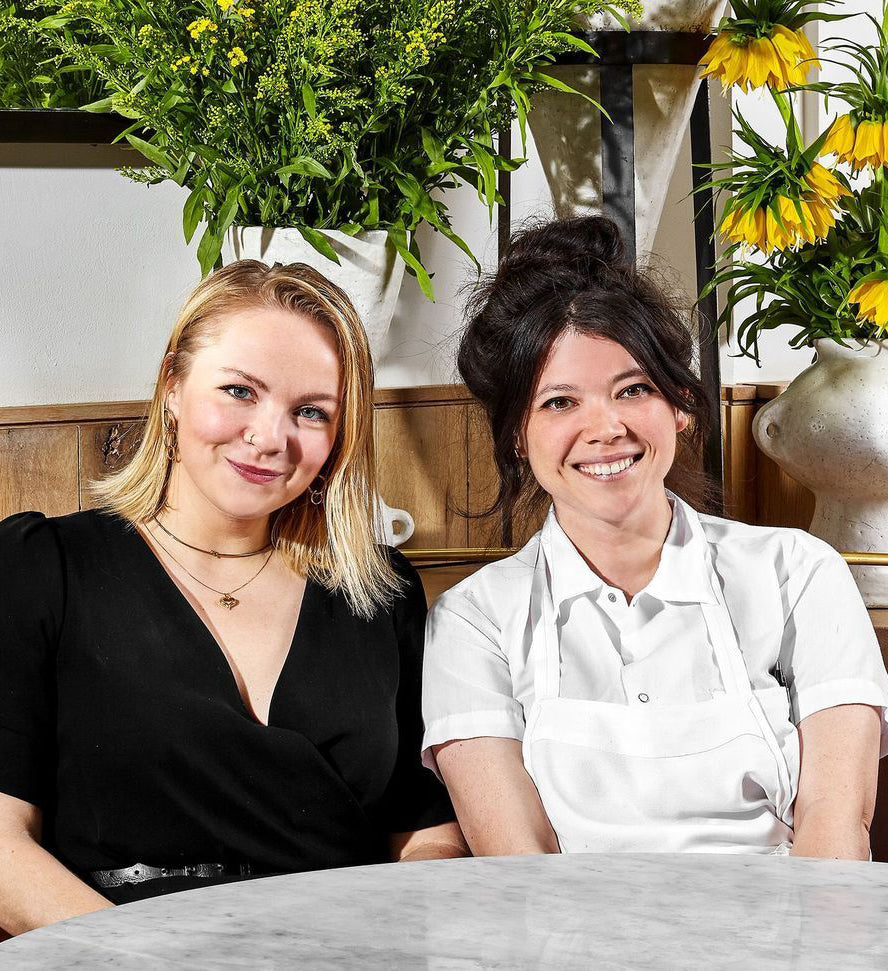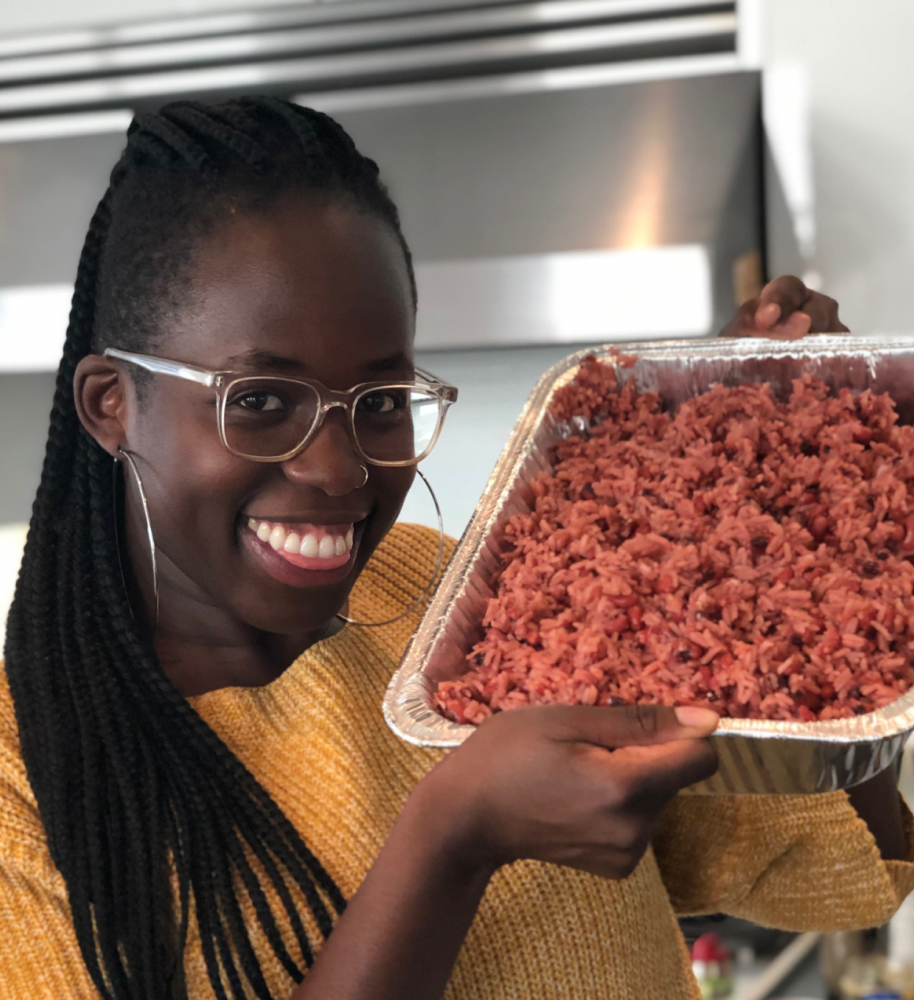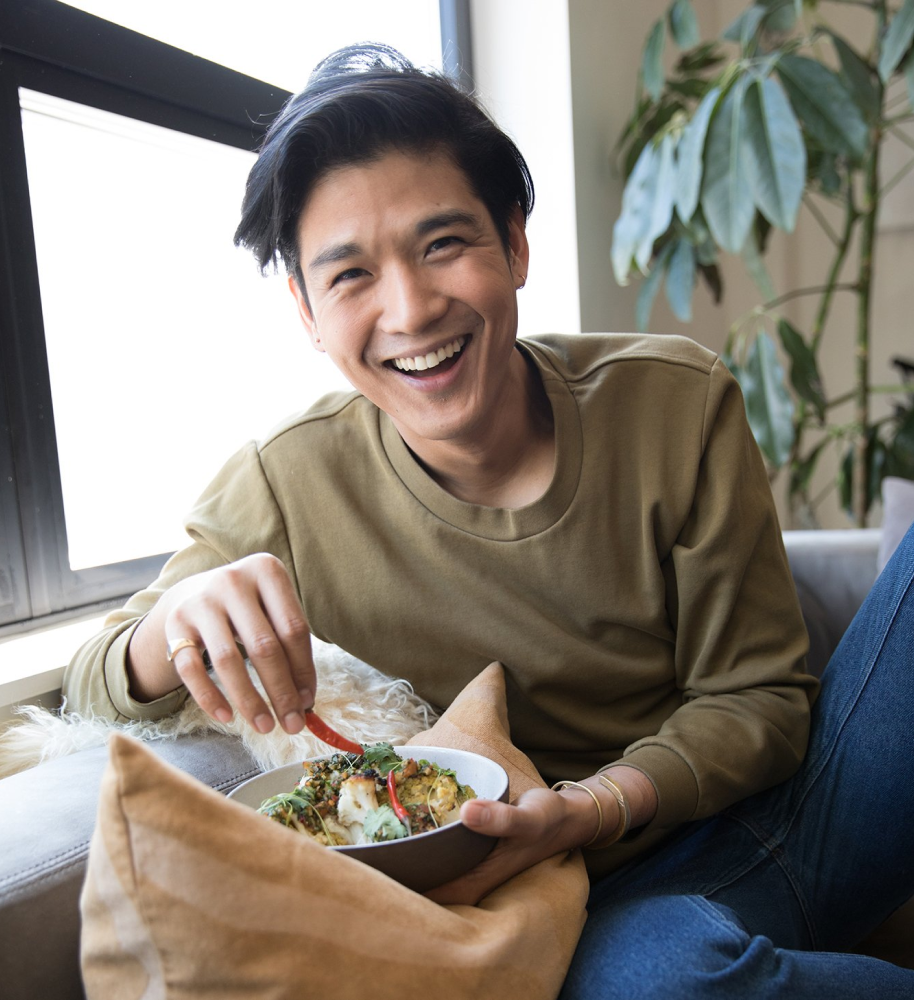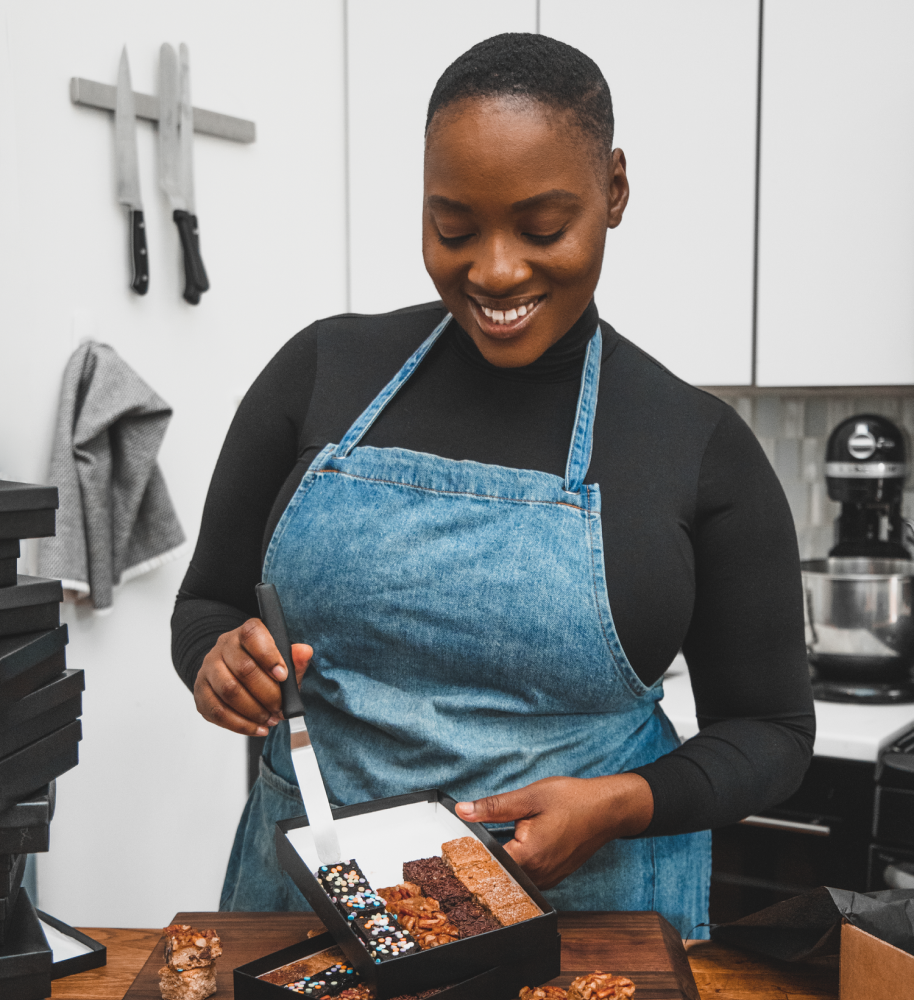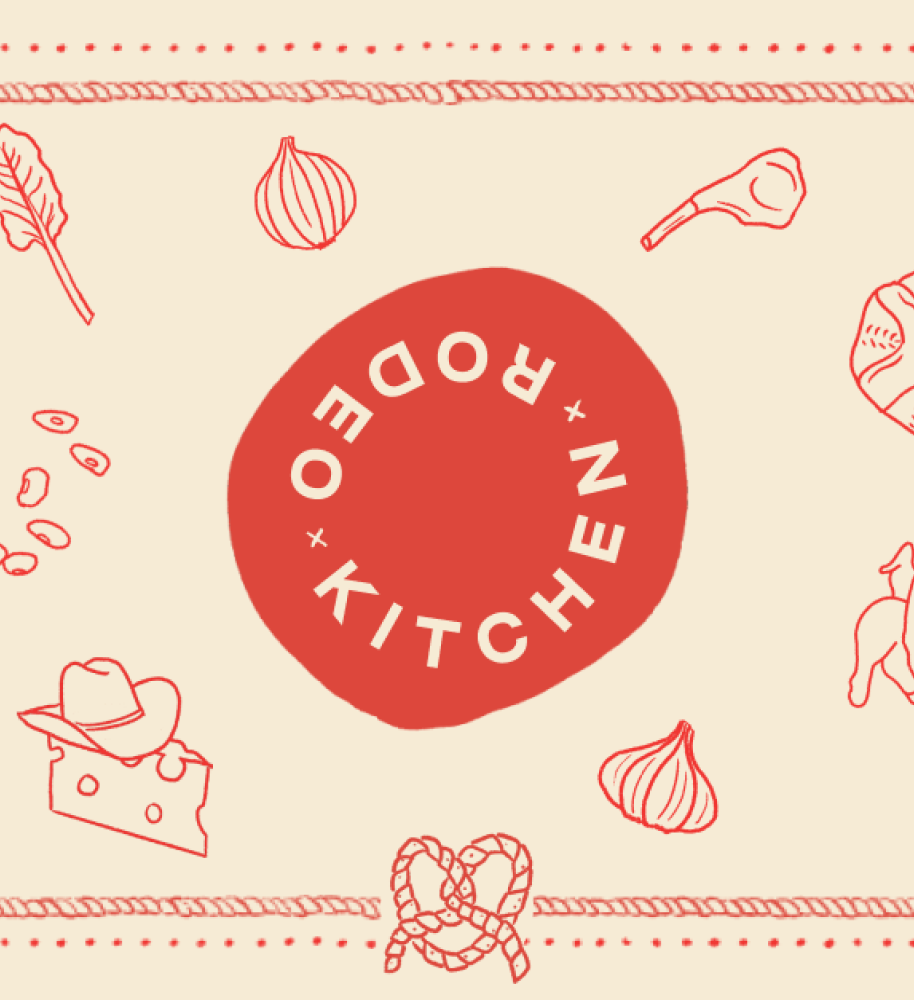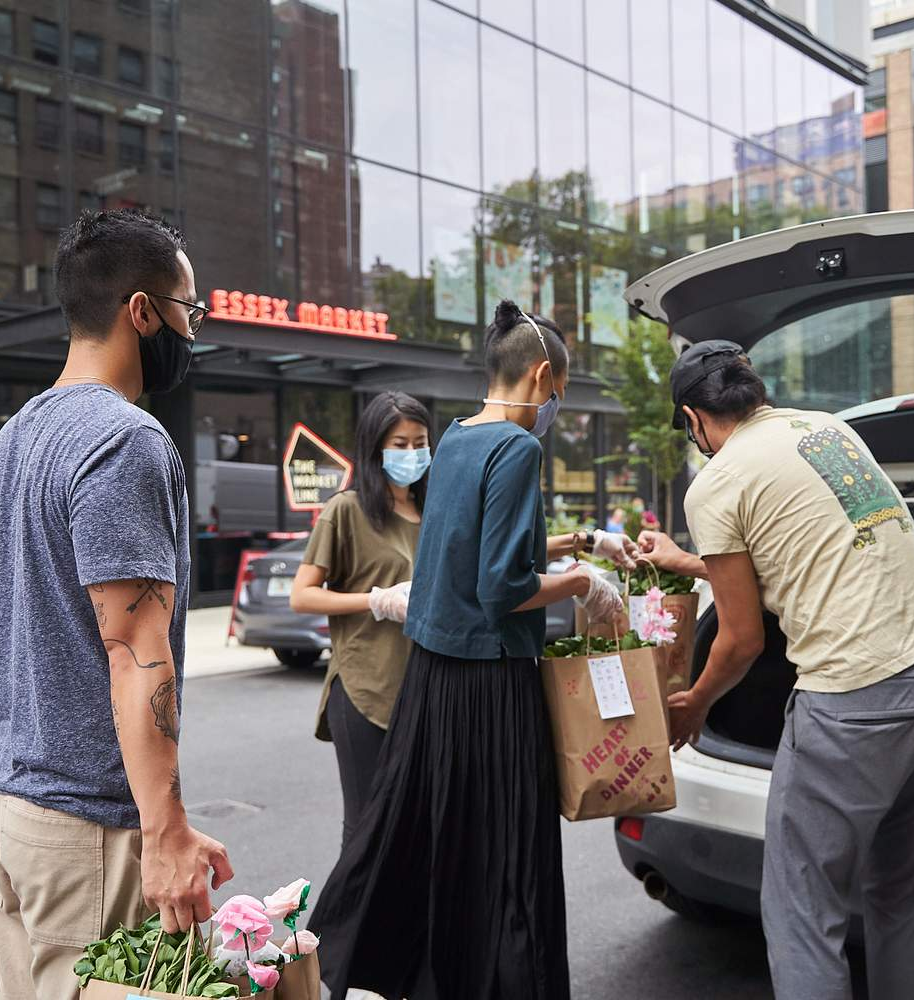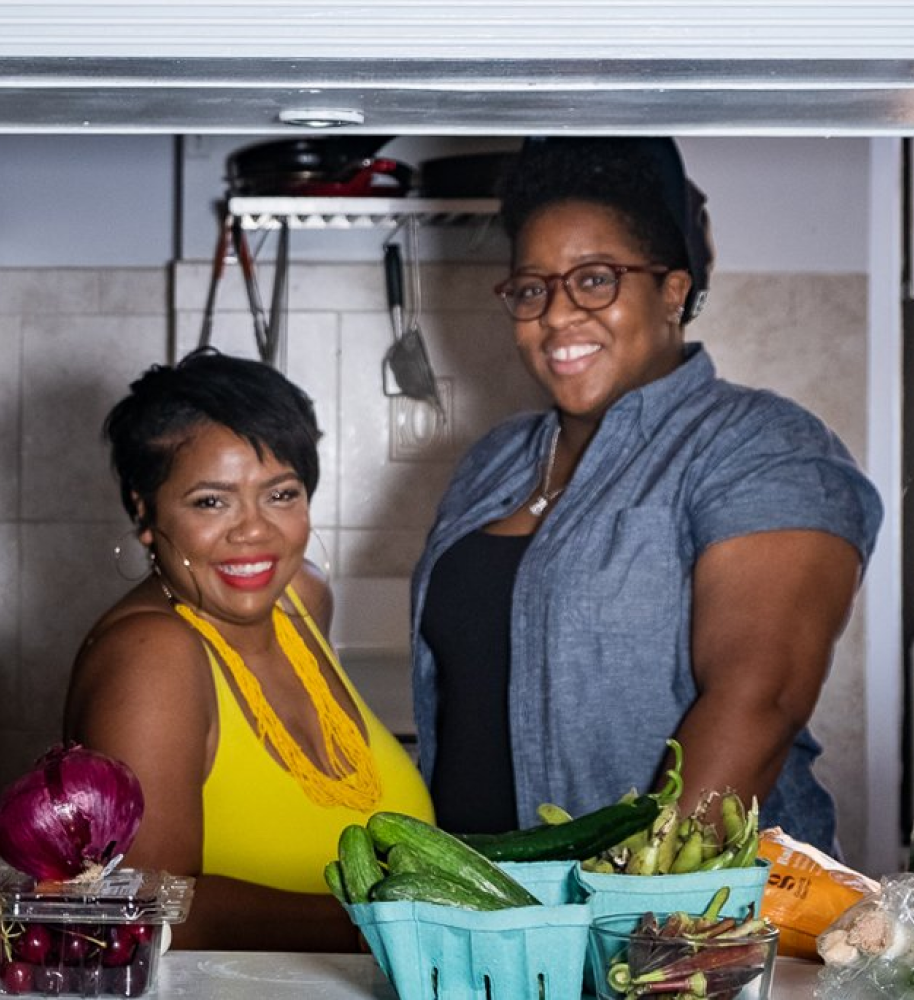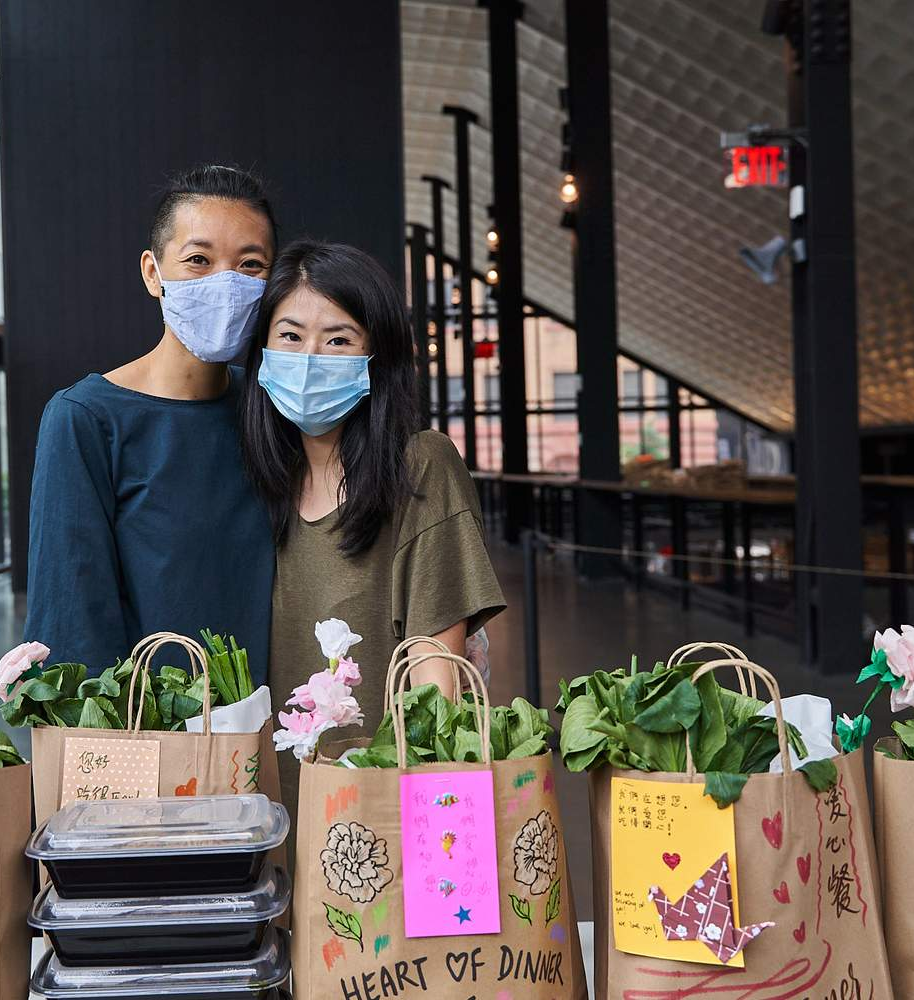This article is part of our Kinder Kitchens campaign. From November 10-30, 2021, the entire Material site is up to 20% off. For every discount you receive, you have the opportunity to donate a portion to Star Route Farm's food access work.

At 11:30am on work days, the team of Star Route Farm in Charlotteville, NY, takes their lunch break. While this may not seem that out of the ordinary for a business (even one as busy and labor intensive as farming) the way that lunch is enjoyed, what’s on the table and who is around it, speaks to the values of Star Route Farm and what sets it apart. Lunch may be a Cambodian chicken soup made with herbs and vegetables harvested from the land, or it may be turnip cakes or a roasted meat or vegetable prepped for tacos made from corn which the team nixtamalized on the premises. It doesn’t matter really-- it’s more about nourishing the bodies around that table, taking a break and connecting with one another.

Started in 2015, Star Route Farm is a vegetable, herb and grain farm offering fresh, nutritious produce to communities in both upstate and downstate New York. Today the team has blossomed to include team members who have moved from New York City to the farm, including former chefs who want to feel closer to the land and be involved in the farming process. The past year and all of the different movements that came with it, have pushed founders Tianna Kennedy, Amanda Wong and Walter Riesen to think about all of the things a farm can do, both in terms of produce and in terms of community. “It gave us a chance to have our work reflect our values,” Riesen says. The pandemic and racial reckoning of 2020 pushed the team at Star Route Farm to think differently about the communities they work with and who was able to access their produce. Seeing the increased reliance on food pantries and community-based free food distribution across the state, made them think about what they could do to help as a farm. The answer? Provide high quality nutritious produce to food-insecure communities for free, but also partner with mutual aid groups across the state to reach more people. “It brought our desire to do more food justice work to the forefront,” Riesen says.
“It was time to act and be the change that we wanted to see.”
Long before you’ve started to cook your meal, the ingredients you’ve chosen have been on their own journey from seed to planting to harvest to your kitchen. Along the way they’ve had hands nurture, package and care for them, often farmers who have thought long and hard about their growth and the soil that produces them. The team at Star Route Farm, including Riesen, Tiana Kennedy and Amanda Wong want to use the items they grow to create change in how people see the ingredients in their kitchen and who they’re supporting when they buy those ingredients.
“When I think about the last year, I think about being so inspired by what I saw people doing in response to the pandemic and the governmental failure to care for its people,” says Wong, about reframing thinking about what a farm can do. Seeing grassroots organizations embrace alternate economies and radical politics that put people over profits encouraged the team to look at serving communities that usually do not have access to healthy and nutritious produce. “It was time to act and be the change that we wanted to see.”


That meant tapping into the interconnectedness of foodways in New York state and working with organizations based in communities they wanted to reach, like Bushwick Emergency Relief Fund, Nuestra Mesa, Comida Pal Pueblo, Wat Buddha Thai Thavron Vanaram and Heart of Dinner. “We wanted to work with organizations that aren’t big and are more grassroots,” says Kennedy. The team also looked into local upstate pantries to contribute vegetables to as part of that work.
Moonlyn Tsai, New York City restaurateur and co-founder of Heart of Dinner which provides meals to elders in New York’s Asian communities who are often homebound because of the pandemic, says Star Route Farm’s work to actively create a just and equitable food system is one way the work of both orgs intersects. After connecting in the Fall of 2020, they’ve been able to partner to provide residents of New York City’s Asian communities with nutrient dense dishes made with culturally relevant produce like bitter gourd, daikon, gai lan, scallions, mustard greens and napa cabbage grown by the team upstate. “They are constantly organizing ways to weave community together and even held an outdoor in-person fundraising event at Brushland selling soup, in addition to their online fundraising efforts, and raising tens of thousands of dollars worth of in-kind produce for community-based organizations like ours,” Tsai says. “Star Route Farm NY is disrupting the food system by re-prioritizing and centering the community.”
“Star Route Farm NY is disrupting the food system by re-prioritizing and centering the community.”
And the team is looking to the future to have even more impact on the communities they work with in the future.The team has set a goal of donating 70% of their produce to food relief organizations in 2021 and increasing that amount to 100% in 2022. It’s a goal that truly speaks to how important outreach is for this small team in upstate New York.
It also speaks to working from a place of abundance, centering food, joy and immense power a cooked meal can have in creating community. “We’re really a food centric farm, we value cooking together and eating together,” says Amanda Wong. “It feels so desperate sometimes economically to farm but it’s so abundant because you can celebrate what is good in this world through food.”


“We’re really a food centric farm, we value cooking together and eating together,” says Amanda Wong. “It feels so desperate sometimes economically to farm but it’s so abundant because you can celebrate what is good in this world through food.”


